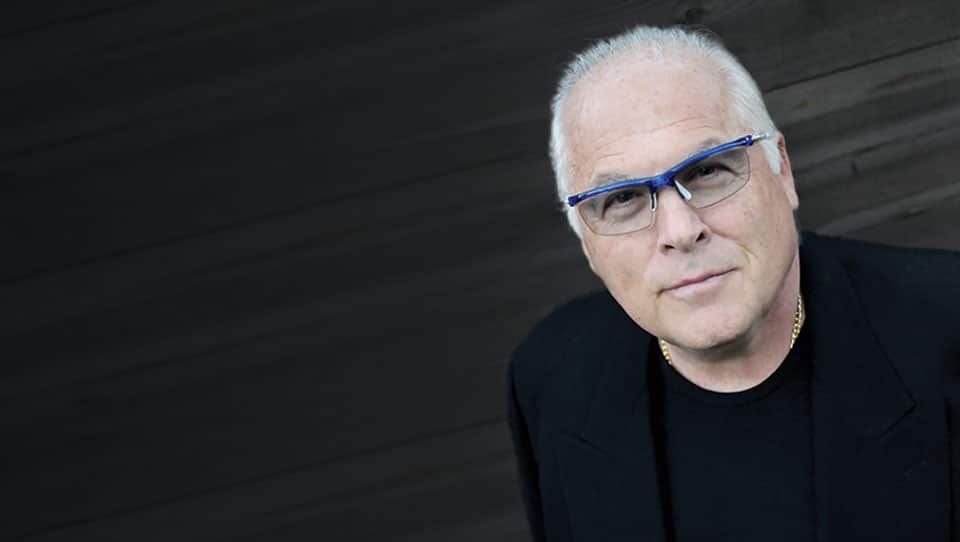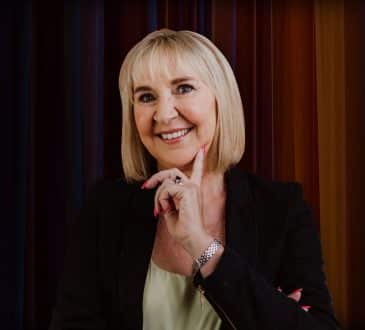Business and political correctness, the culture of apology and the oxymoron of situational ethics.

Political correctness is a particularly insidious and ravenous cancer of the intellect. It has done more harm to all aspects of business and society than any despot could have.
It is indisputable that business has to navigate within at best painful, at worst the ethically bankrupt construct of political correctness (PC).
Think of the devastating effects of PC on every aspect of your businesses. And your personal lives. From ordinary freedom of expression to the absurd: science and technology’s willingness to express ordinary findings. A couple of scientists I have read recently – empiricists and social, admit to membership in the “how dare you state those facts in public” paradigm. Me, your humble scribe, however relevant or not my limited presence may be, sometimes write under a nom de plume. Trust that is not an affectation.
Business must mind its public façade entirely. Its internal workings, private persona, is increasingly made public. Is your business free to express anything internally that you do not want public, courtesy of those multi-purpose, small electronic devices everybody has on them or proximate to them? The prevailing mantra, business professing policies to be entirely transparent, is irrelevantly disingenuous.
Being “private” has gone out when women and men began walking upright “for real”: got a marginally intelligent mobile device, and began to believe in their divine right to elbow major enterprises by intimidation.
How hard is it for business to keep their “secret sauce” secret? Reflecting on times I have been asked to advise would-be clients on the “secret sauce” of other or former clients. Ironic how some C-folks wanted to know why I would not disclose other companies’ advantages in the marketplace considering the princely sums I could have billed for my limited wisdom. And compromise a principle.
Next “we talk”, glad to share some disturbing responses I got to my simple question: How would you feel if I did that to you?
PC is the ubiquitous thought-police, whose charter is to impede society and business.
This is what it has come to: everything, everything, said, written or broadcast will irk somebody. Think about the absurd. Best not hold forth on your like, certainly not the efficacy of analog watches. You will be labeled Jurassic or elitist! Certainly a science reprobate. Really provoke digital-watch wearers. If you happen to manufacture those elegant however wrongly characterized low-tech puppies, suffer the consequences. Imagine anything else that is relevant.
Joe Rogan can protest all he wants. In his own words, he “talks <expletive deleted> about everything”. Millions are angered to darned-near violence because of some of his opinions. My best on the dust-up over his disdain for PC: if you are getting medical advice from Rogan or from any interview he does with whoever, you need a doctor!
Yet, irrelevant to so many who elect to go head-hunting for him rather than change the darned dial! Lesson to be learned by CEOs?
Amazingly, so many in business actually assert to read and care — and might even act on!! — what “doodlybogofasfee24” just dumped on Twitter, however sophomoric it might be.
Not only do I not care, I loathe that, my steadfast support of free speech notwithstanding. I cannot get behind the mostly garbage-speak, if not – forgive the impudence of my words – typed vomit.
That from me, a First Amendment type.
I “saw” Twitter when dude-in-chief Dorsey launched it! I refused to understand it when explained to me, for hours and hours, by the kids in THE room. They labeled me a barely functioning idiot. Understand it now. Loathe it for two reasons: first, the obvious. Next, ordinary envy that I did not invent it and ignored it when there was just a roomful of people talking about it.
Keep thinking! But, for your sake and the sake of all those depending on the well-being of your business, and the business itself, keep it to yourself! Otherwise, you might just get summarily cancelled: socially, economically, even physically.
Here is a thought-flare from me. Think of your business as an ice cream shop. You make 54 excellent flavors, but you can sell only one. Best be aware of demographic, psychographic, social and political components in having to offer that one flavor.
Selecting THAT one flavor, in today’s hyper-heated, racially and socially polarized PC world, is a monumental chore. Of course, an economically poor one. Given the limitation to just one flavor of ice cream to sell, it would have to be strawberry! First, it has to be a universally liked flavor. Strawberry is one of those flavors enjoyed around the world.
At this writing, still, the two most desired flavors of all time are vanilla and chocolate. These days, picking the one flavor to sell that appeals to the biggest audience is very difficult. Lest you want your ice cream empire cancelled, and you and yours in witness protection, best not pick either vanilla or chocolate.
Thus, you get to go down in intellectually dishonest and economic flames in pitiable style.
Then there is PC’s traveling companion: the culture of apology. Seppuku is one of the anthropological absurdities we might have passed on adopting from the Japanese.
I see our culture of apology as simulated hara-kiri. Nobody dies. But our souls. The Japanese are masters at falling on their swords, just figuratively nowadays. Suicides are limited to tortured souls, not the non-compliant. It is the rigueur for a business executive to publicly and hyper-emotionally apologize to the entire world when their company misses “street” estimates by a mere point or two. Thankfully, in the U.S. they just buy up their own stock at distressed pricing.
Back to our version of seppuku.
Did that company apologize publicly? Was the apology genuine? Sufficient?
Enough of this rant. I confess that sometimes my level of PC is directly proportional to the degree I think my physical self is in peril.
If your business will trade being honest for being PC, it ultimately contributes to the evisceration of its fundamental moral principles: ethics. And nurtures the most offensive pathology of situational ethics.
The most ordinary definition of situational ethics would be that moral principles govern business’ and people’s behaviors. Another definition, one that is now unfashionably time-worn, is that ethics are essentially moral philosophy that defines what is [morally] good, bad, right, wrong.
Witness the torturous definitions of ethics. The more elegant the words or concepts expressed in words, the more likely definitions will be somewhat circular.
I write and speak about being situationally ethical. Before defining that with my own terms, consider two definitions. One ancient and with waning relevance, the Oxford version: “The doctrine of flexibility in the application of moral laws according to circumstances.” Whoever wrote that had a way with words. Perhaps some wisdom. And entirely intellectually compromised.
“Flexibility in the application of moral laws…” A natural oxymoron.
Then there is the “modern” version, crafted by Wikipedians, those unnamed, with unspecified competencies, uber-modern, ether-based editors of knowledge: “Situational ethics or situation ethics takes into account the particular context of an act when evaluating it ethically, rather than judging it only according to absolute moral standards.”
So. Are ethics virtue or a social pathology? Is honesty in business little more than occasioned convenience?
In ordinary terms, situational ethics in business is adopting whatever ethics and morality the enterprise may have to circumstances: social, economic, political, and all manner of shallow environmental balderdash in the world in which we live.
I do not mean the weather. Rather all what goes into the decision-making sausage. Empiricals — facts (times, dates, places, people et al) — and those pesky esoterics: circumstances and relevancies.
Today, the reality is that if business does not bend with all those “things” that assault it daily, it will break. Even as it genuflects! At least to some extent. Ethics and morality be damned. We have become really good at kicking business and people when they are down.
For business, as it is for people, not being situationally ethical is a big ask. Not being that spells the death knell of civil and critically important discourse.
And now the ubiquitous “however.”
Wise — read that as forward thinking and looking — businesses must never forego doing exhaustive homework, and prudent decision-making, therefrom. Reflexive bowing-down, knee-jerk prostrating to appear in sync with contemporaneous social hurricane-strength wind gusts, almost always has immediate deleterious consequences. Ask Coke and Delta. And always long-term ones.
All of the aforewritten point to a terrific opportunity, no, imperative for all your [and you] marketing, advertising, public relations people to deliver good results within the prevailing social and legal tsunami. Only the greats, will navigate the PC quicksand well and come up with lasting, elegant solutions.
Written by Steven J. Manning.
Have you read?
Best Business Schools In The World For 2022.
Best Fashion Schools In The World For 2022.
Best Hospitality And Hotel Management Schools In The World For 2022.
Best Medical Schools In The World For 2022.
The World’s Best Universities For Doctor of Business Administration (DBA), 2022.
Bring the best of the CEOWORLD magazine's global journalism to audiences in the United States and around the world. - Add CEOWORLD magazine to your Google News feed.
Follow CEOWORLD magazine headlines on: Google News, LinkedIn, Twitter, and Facebook.
Copyright 2025 The CEOWORLD magazine. All rights reserved. This material (and any extract from it) must not be copied, redistributed or placed on any website, without CEOWORLD magazine' prior written consent. For media queries, please contact: info@ceoworld.biz











